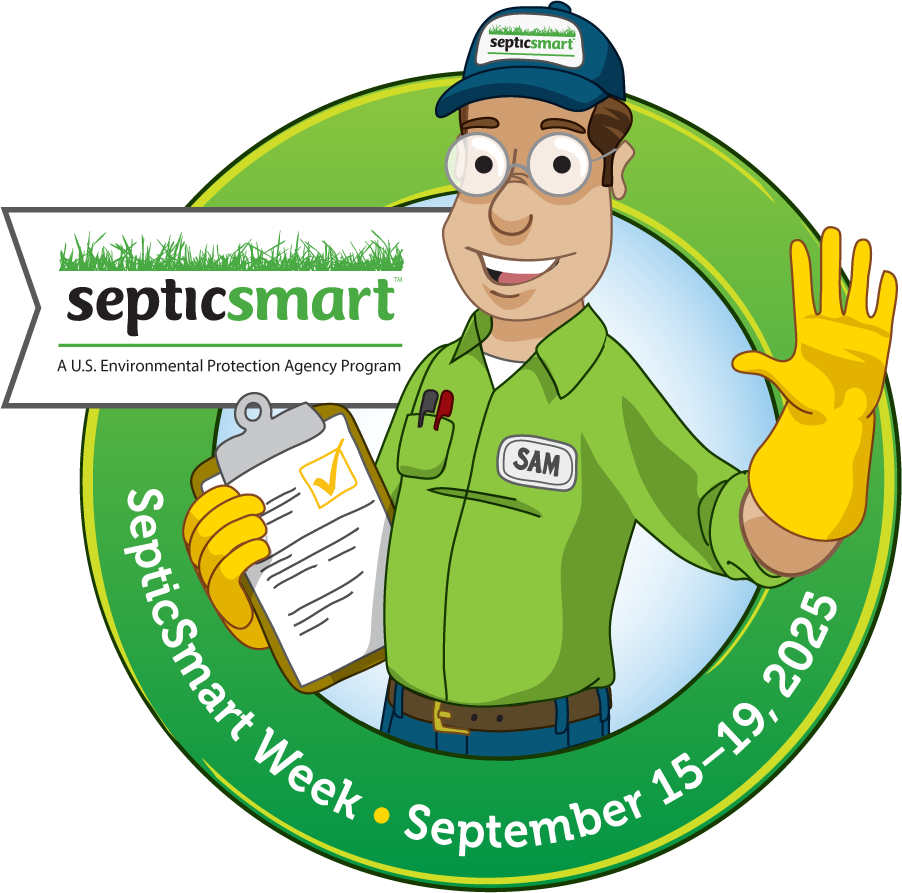
International Code Council Celebrates 2025 SepticSmart Week
This year’s campaign, being held from Sept. 15-19, provides resources, tips and events to encourage actions like regular inspections, pumping and responsible water use, helping prevent costly repairs and ensuring the longevity of septic systems.
SepticSmart Week is an annual campaign led by the U.S. Environmental Protection Agency (EPA) to promote awareness about the importance of proper septic system care and maintenance.
Held from from Sept. 15-19, 2025, the campaign aims to educate communities on the significance of maintaining their septic systems to protect public health, the environment and safeguard local water sources.
This year marks the campaign’s 13th anniversary, and provides updated resources, tips and events to encourage actions like regular inspections, pumping and responsible water use to help prevent costly repairs and ensure the longevity of septic systems.

Septic System Best Practices Podcast
In collaboration with this year’s SepticSmart Steering Group, the University of Illinois State Water Survey and the Rural Community Assistance Partnership (RCAP) have released the first episode of TapTalk Season 6, highlighting SepticSmart best practices. This episode features RCAP technical assistance providers Jim Starbard and Andrew Evans, who share real-world experiences addressing onsite wastewater and septic system challenges across Massachusetts and New England.
Listen to the podcast here.
Proclamations
SepticSmart Week proclamations have already been issued by the National Onsite Wastewater Recycling Association (NOWRA), as well as the states of Washington, Michigan, North Carolina and New Mexico. Proclamation templates are available on EPA’s website here.
Code Council Standards Supporting Proper Septic System Maintenance
ICC 825, Private Sewage Disposal Systems, is a new global standard being developed by the Code Council to set minimum requirements for the design, construction, operation and maintenance of residential onsite wastewater treatment systems. These systems include septic tanks and effluent absorption systems, as well as other treatment and disposal systems, for areas where public sewers are not available.
The standard will emphasize resilience to climate change and extreme weather, supported by scientific research. ICC 825 will complement the sanitary drainage aspects of ICC 815, which covers the sizing of water distribution, sanitary drainage and vent piping systems.
The standard’s development involves monthly committee meetings, which are open to the public, and several sub-committees working on areas including septic and holding tanks, soil absorption, mound systems, pressure distribution and other wastewater treatment systems. Leading one of these sub-committees is Bronwyn Humphries, a research scientist with the New Zealand Government’s Environmental Science Research, as New Zealand is at the forefront of Onsite Wastewater Treatment Systems (OWTS) technology.
The research phase for the standard is nearing completion. The University of Miami has developed a toolkit that complements the standard by helping select the most appropriate technology based on variables such as soil type, flood risk, financial constraints and operations and maintenance capacity, among others.
The ICC 825 committee aims to produce a standard that offers innovative solutions for OWTS, while ensuring compliance with local regulations. The target completion date for ICC 825 is early 2026.
To learn more about the development of ICC 825, click here. For access to more PMG-related resources, click here.







